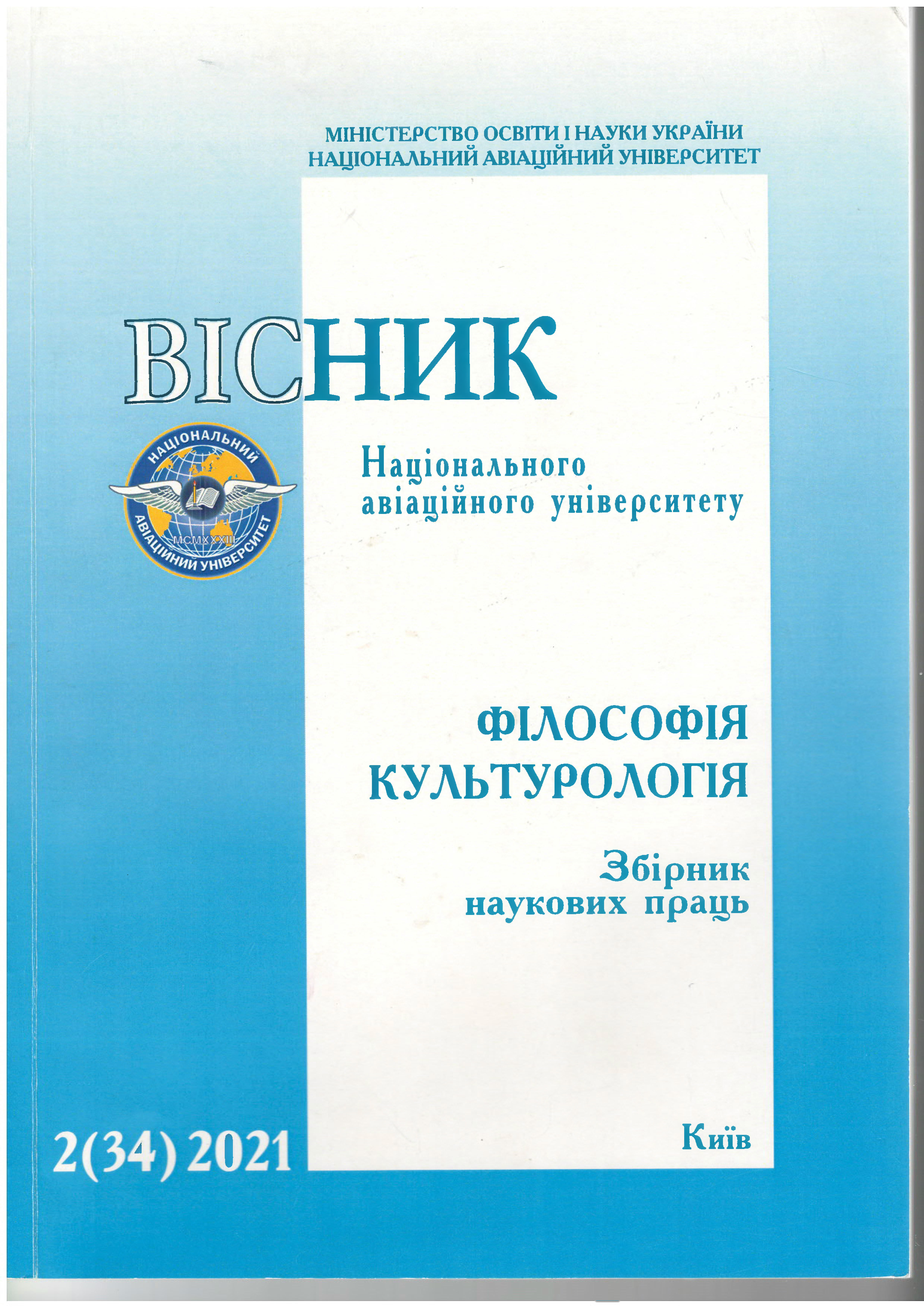TRENDS OF TOURISM DEVELOPMENT IN THE MODERN WORLD
DOI:
https://doi.org/10.18372/2412-2157.34.16335Keywords:
tourism, e-tourism, endogenous and exogenous factors, service industry, experience industry, mobile tourism, COVID-19Abstract
Introduction. The scale and pace of social changes during the pandemic actualizes the socio-philosophical analysis of trends in
tourism as one of the most dynamically developing social institutions. The aim is socio-philosophical analysis of the main trends in
tourism in the modern world. The tasks are: 1) to to study the determinants of the development of the institute of tourism in the modern
world; 2) to identify the features of changing the role and place of the institute of tourism in the quarantine restrictions of modern society.Research methods used in the article are systemic, institutional approach, structural and functional analysis, problem method, method
of expert assessments, generalization, content analysis. Research results. The conditions tourism develops in are influenced by
numerous factors. The most important external factors are natural (cataclysms, pandemics, etc.), political and socio-economic ones. In
addition to them, there are phenomena and trends that are manifested directly in the field of tourism, namely: the demand and supply of
tourist services; institutional and technical-technological factors. In the context of globalization of the tourism market, the role and
importance of the quality of information exchange in the tourism market is growing. The information technologies used in the modern
tourism business can be divided into two groups. The first group includes technologies that promote automation and increase the
efficiency of internal office business processes. The second group provides interaction with the end user. Discussion. In addition to the
development of the main areas of tourism, in parallel, the dominant trend in the development of world tourism is the formation and
development of the tourism industry as an industry of impressions. Conclusion. The development of tourism is influenced by external
(natural, economic, political) and internal (related to the demand and supply of tourist services, institutional and technical-technological)
factors. The coronavirus pandemic and the accompanying anti-epidemic measures have called into question the profitability of the
industry, millions of job places, but have differentiated the forms of tourism, approving the trend towards an individualized tourism
product. The globalization of the tourism sector as a consolidation and active penetration of the capital of individual companies in foreign
tourism markets by merging or absorbing the spheres of tourism service has contributed to the establishment of a single information
exchange between its participants. The tourist market offers are changing to alternative and non-traditional ones. The transition to the
impression industry determines the increase in demand for exotic types of tourism and requires the creation of a new tourism product
suits the ever-changing needs of tourists.
References
Антіпова О. П. Ключові тенденції трансформації
міжкультурної комунікації в умовах пандемії / О. П. Антіпова //
Вісник Національного авіаційного університету. Серія:
Філософія. Культурологія. 2020. – № 2 (32). – С. 109-114.
Биржаков М. Б. Введение в туризм. – СПб.: Герда,
– 192 с.
Дротянко Л. Г. Комунікації в соціальних мережах і
феномен мультикультуралізму / Л. Г. Дротянко // Вісник
Національного авіаційного університету. Серія: Філософія.
Культурологія. 2019. – № 1 (29). – С. 16-21.
Морозов М. А., Морозова Н. С. Информационные
технологии в туристской индустрии: учебник. – М.: КНОРУС,
– 276 с.
Кізіма В. Cубстанційні виміри феномену туризму. URL:
https://tourlib.net/statti_ukr/kizima.htm.
Концептуальная записка: COVID-19 и перестройка
сектора туризма. URL: https://www.un.org/sites/un2.un.org/ files/
policy_brief_covid-19_and_transforming_tourism_russian.pdf.
Кусков А. С., Джаладян Ю. А. Основи туризму:
підручник. – М.: КноРус, 2011. – 392 с.
Малахов В. Екзистенційно-етичний сенс туризму як
різновиду подорожування. URL: https://tourlib.net/statti_ukr
/malahov.htm.
Отчеты и рекомендации ОЭСР в связи с пандемией
коронавируса. URL: https://oecd-russia.org/media/covid19/52.pdf
Пазенок В. Філософія туризму. URL: https://tourlib.net /
books_ukr/filotur11.htm.
Пода Т. А. Вплив пандемії COVID-19 на міжнародні
відносини: ключові тенденції / Т. А. Пода // Вісник Національ-
ного авіаційного університету. Серія: Філософія. Культуро-
логія. – 2020. – № 2 (32). – С. 124-128.
Программа устойчивого туризма в составе 10-летней
рамочной программы в области Устойчивого потребления и
производства. URL: https://spaces.oneplanetnetwork.org /system/files/
yfp-stp-brochure-ru.pdf.
Соляник С. Ф. Туризм як соціоетичний чинник суспіль-
ного життя : автореф. дис. … канд. філос. наук : 09.00.03. –
Київ, 2010. – 20 с.
Ястремська О. О. Сучасні світові тенденції розвитку
туризму / О. О. Ястремська // Світова економіка та міжнародні
відносини. – 2013. – № 1. – С. 22-27.
COVID-19 AND TOURISM AN UPDATE (Assessing the
economic consequences). URL: https://unctad.org/system/files
/official-document/ditcinf2021d3_en_0.pdf.
On International Day, UN chief spotlights indigenous
peoples’ resilience in face of COVID-19 pandemic. August 9,
URL: https://news.un.org/en/story/2020/08/1069822.
Tourism for SDGS. A platform developed by UNWTO.
URL: https://tourism4sdgs.org/tourism-for-sdgs/what-are-the-sdgs/
UNWTO. World Tourism Barometer. 2020. Vol. 18. № 4.
June. Madrid. URL: https://doi.org/10.18111/wtobarometereng.
Urry J. Consuming Places. London : Routledge Publ.,
– 264 p.

